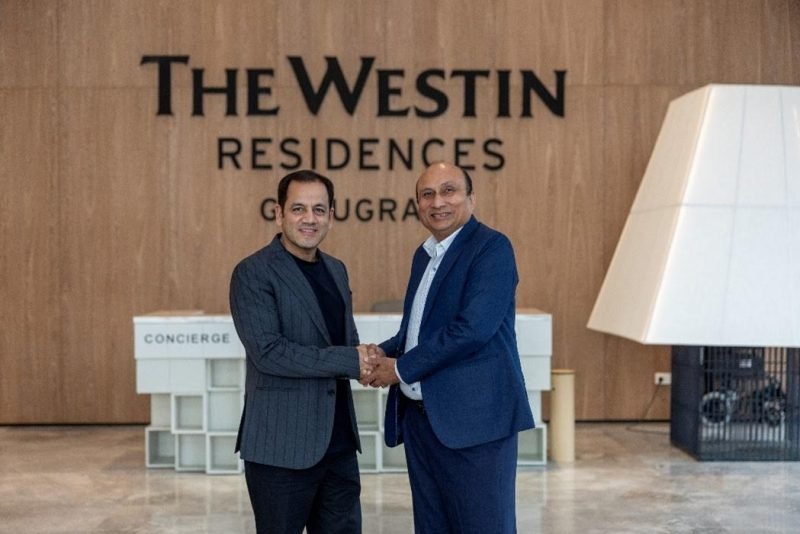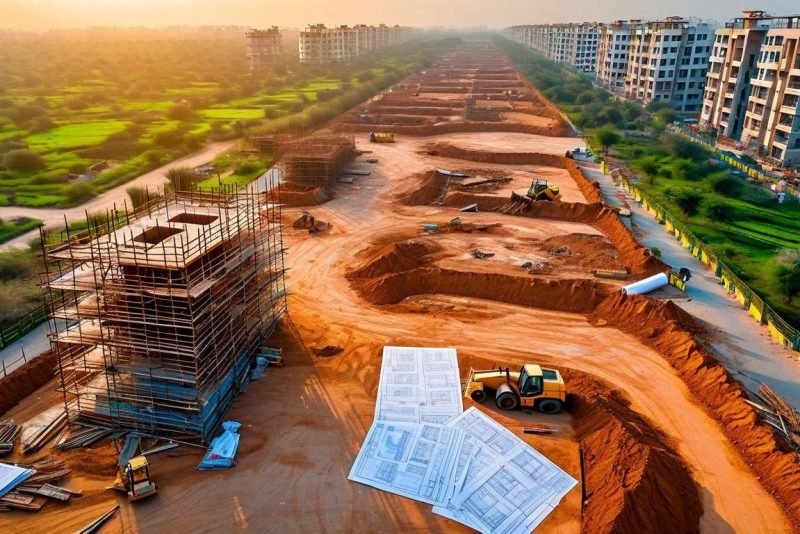Unlike their previous generations, millennials have a quintessential approach to buying property. Unlike their predecessors, they see a house not just as a commodity but as an indulgent investment.
Driven by the limitless ambitions of its youth, New India is shining brighter than ever before. This millennial generation is not shackled by the doubts and fears of its predecessors, but rather soars on the wings on determination and self-assurance. While previous generations believed in renting homes and buying a home after reaching a certain age, the millennial demographic refuse to compromise on buying the home of their dreams. Millennials contribute 34% of India’s population, which is close to 440 million people.
Next generation of homebuyers that is driving the real estate growth in 2023
The pandemic has changed their mind set in more ways than one. Millennials are now keener than ever to invest in the real estate market. Even in the wake of geopolitical uncertainties, the demand for real estate has continued to rise due to the sanguine outlook of the millennial homebuyer. In the era of globalisation, this generation enjoys the highest purchasing power than any generation before. The aspirational millennial is more aware than ever before of the value of real estate as an investment.
Indian millennials are a very important market. They are in their peak buying years and have easy access to home loans. This demographic contributed to over 50 percent of homes sold in 2020, and they were a major driver in the Indian real estate market crossing the mark 54% in 2022. Extrapolating these growth trends, the Indian real estate sector is forecasted to cross 1 trillion dollars by 2030, which will contribute to over 13 percent of the national GDP.
Paradigm shift in the way residential properties are developed across India
Unlike their previous generations, millennials have a quintessential approach to buying property. Unlike their predecessors, they see a house not just as a commodity but as an indulgent investment, and therefore they have specific needs and expectations when it comes to choosing a home. Discerning, demanding and determined, this generation expects the real estate properties that are integrated with modern and smart amenities at par with the global standards. Their hopes and dreams are bound only by their fearless audacity to aim higher than any generation that came before them.
Millennials want smart spaces that allow them to work from home, while also offering expansive green open spaces, culturally vibrant entertainment zones, wide balcony areas, My spaces for mee time and secure and sophisticated digitally-enabled surveillance systems. Additionally, they seek homes that offer a complete integrated living experience, with diverse amenities that make daily life easier and entertaining. These include a plethora of facilities such as engaging clubhouses, children-friendly pool decks, gymnasiums, diverse fitness studios, state-of-art libraries, spacious community halls, and integrated sports complexes.
Digitally-inspired generation
Millennials are digitizing the home buying experience. From virtual tours to digital appraisal scheduling and from virtual inspections to remote notary services, millennials prefer to have digital closings of their prospective homes. As millennials are also twice as likely to shortlist their dream homes on their mobile phones than the past generations, all this is now a staple of the tech savvy generation. Proximity to workplace is no longer the first priority, but connectivity is the top criteria for buying a home now.
The highly ambitious millennial generation is no longer ready to compromise on a certain level of comfort and lifestyle. This has created a specific demand for real estate properties that provide modern luxuries, while being intricately connected with social infrastructure facilities. Homebuyers today are looking for modern residential properties that provide them with logistical convenience by being located near their offices, are in close proximity to shopping high street /malls and entertainment venues. Leading real estate developers have pivoted in alignment with the needs of the millennial homebuyers and are developing premium residential properties to cater to the demand for the modern integrated lifestyle.
In recent years, there have been a flurry of residential projects launched in highly posh localities, which include luxury and premium luxury gated communities. In terms of the millennials’ buying preference, the focus has shifted from compact homes to Smart Homes. Incorporating Internet-of-Things (IoT) and virtual home regulation systems, these new age smart homes are designed specifically for the requirements of the millennial homebuyers. These aspirational millennials place a high valuation on social connectivity and integration. This translates into young homebuyers preferring residential areas that provide a strong sense of community living. The best real estate developers are eager to meet this demand and are constructing residential complexes that are furnished with communal features like shared lounges, co-working spaces, clubhouses and dedicated community-gathering arenas.
Millennials are prioritizing health and hygiene above all else
They are looking for homes with open green spaces. The next generation of ambitious homebuyers are willing to pay a higher premium on living a sustainable and healthy lifestyle. Millennials do not consider environmental sustainability a premium luxury, but rather a basic necessity. While uncompromising on social amenities, they are equally unrelenting on environmentally conscious building practices. When it comes to ecological sustainability, millennials are willing to go the extra mile for their future. Asset classes that incorporate renewal energy through solar panels, conserve water through integrated rainwater harvesting systems, and safely dispose domestic waste through organic waste management systems are more preferred by millennials than other discounted properties. Millennials refuse to put a price tag on their futures. Modern real estate developers are now more sensitised than ever before in creating enhanced projects, which are certified by global environmental standards. Aesthetics of the property are meticulously intertwined with eco-friendly elements in order to appeal to a younger demographic of homebuyers.
The real estate industry is undergoing a significant change driven by the aspirations of the millennial generation
With a significant increase in purchasing power and an illimitable desire to achieve a modern holistic lifestyle, more and more millennials are investing in integrated real estate properties. While 66 percent of millennials have stated that investing in home ownership is a stable long-term investment, 30 percent have cited social status as another motivating factor that led them to invest in homes. The desire for deluxe housing reflects the millennial mind set. They do not rush into buying a home. They wait before taking the plunge and invest in premium quality product. The growth of the global real estate market depends on this shifting trend, which grew to 4000 billion dollars in the last year, which is a growth of 7 percent worldwide.
Studies have shown that the millennial generation is the most confident generation when it comes to financial literacy and will push the global real estate market to 5200 billion dollars by 2027. Though buying a home is never an easy decision, the millennial generation are more than ready to invest in their luxury dream homes. They are now ready to plant their roots and more than happy to own real estate. Millennials are no longer the “rent generation”. As current market trends are extrapolated towards future horizons, it can be forecasted with reasonable certainty that this trend is highly likely to continue into the perceivable future. By understanding the needs and expectations of the millennial demographic, modern real estate developers in India are impeccably poised to lead the real estate growth in 2023 and beyond.
Source: FE




